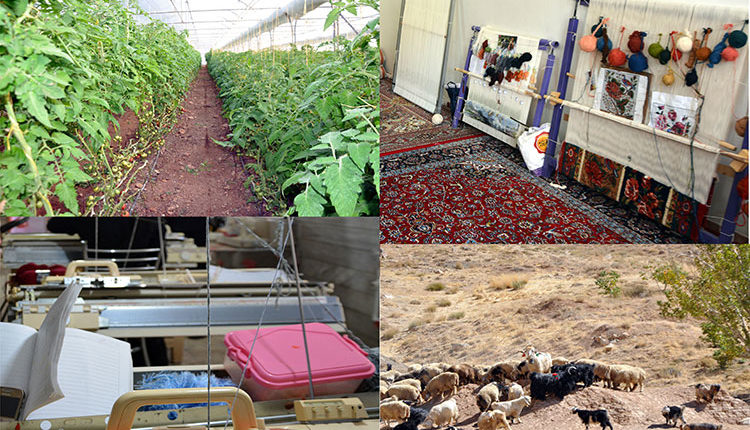Rural entrepreneurship dos and don’ts
Mohsen Molayi, founder of Bonyad Paresh: village is one of the key factors of production and formation of processes in Iran.
Looking at villages and their challenges was a goal followed in an event called Hamnet Roosta. In this event people who are interested in rural issues try to make a connection between villages and young smart people.
This little place is independent in producing needed products and has an important role in forming human societies.
Population growth, weather changes and change of lifestyle and entry of disparate cultures are among causes that have led to immigration from villages to cities.
This has led to lack of human resource. Rural society is a kind of long-term society in which generations transfer their experiences for example agricultural experiences to the next generation.
But currently because of growth of education and cultural changes, rural society moves to short-term society and this is critical because villages will be more consuming and this vital unit in Iran economy will die.
But the question is whether people who are not trained in this field can plan and find issues in this area or not. And are non-native models which are based on non-Iranian ecosystems responsive to these issues?
It seems that rural entrepreneurship is something more than creating self-employment and jobs for urban people in rural areas.
Non-native events which don’t have models in accordance with conditions and abilities and native skills, can’t have a scientific achievement for villages. Thus, it causes villager to resist against future plans in this area.
It is essential that we create a native model for rural entrepreneurship based on abilities and experience and capital in villages and appropriate indicators should be established for plan assessment.
Certainly we should not use indicators which are used in developed countries for assessment of rural entrepreneurship plans in Iran because these plans are not suitable for our culture and hardware.
Hamnet Roosta is the first attempt in this regard in Iran. It seems that some changes should be applied in Hamnet event.Change in rural outlook, selection of participants and preparing them for participation.
Scientific Deputy’s attention to entrepreneurship and transplantation and the use of elites in solving social problems is a good event but we should consider that in Iran elites are those young people with high education who have no skills in defining problems and haven’t touched them in real time.
It seems that in order to use their intelligence, we should introduce problem solving skills to them.
You may like too see related post from here.


Comments are closed.